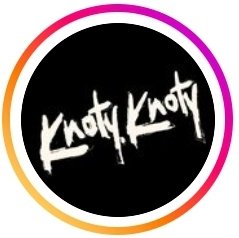Dolce & Gabbana fall/winter 2015/16 runway at Milan Fashion Week (Photo by FILIPPO MONTEFORTE/AFP … [+]
A new report, launched as Milan Fashion Week begins, is calling for collaboration between fashion brands and manufacturers in Italy to ensure gender pay equality across the value chain.
Between 2020 and 2023, female representation on the boards of major fashion Italian houses grew from 21.3% to 27% thanks to growing awareness of the issue. However, in the manufacturing sector of fashion, only 1 in 5 companies monitor and report on their gender pay gap, making progress difficult to track according to the report by Global Fashion Agenda and PwC with support from the Camera Nazionale della Moda Italiana. It notes that 80% of Italian manufacturers are microenterprises, comprised of fewer than 10 employees, making them exempt from EU and Italian laws requiring gender pay gap reporting.
Erika Andreetta, partner PwC Italia EMEA luxury community leader, said: “Only half of large companies and less than half of micro and SME manufacturers monitor and report on wage inequality. There is an urgent need for more transparency and standardized tools throughout the value chain, along with the development and integration of responsible purchasing practices throughout the due diligence process.”
The report, which surveyed 105 Italian manufacturers, also highlights a disparity on perceptions of gender pay gaps between CEOs and HR professionals. Two out of three HR professionals and half of diversity, equality and inclusion professionals stated that there are pay inequalities to the disadvantage of women, while only 20% of CEOs agreed with this view. Similarly, 82% of CEOs believe that opportunities in career progression is equal between men and women, while only half of HR and DE&I professionals partially agree.
Research for the report also included 25 brand interviews and two round table discussions amongst executives in the fashion industry.
A lack of women in senior positions in the fashion industry has been a hotly debated topic this past year. When Seán McGirr was appointed creative director of Alexander McQueen last October, replacing Sarah Burton, critics were quick to hit out that the move meant that every Kering-owned brand is now headed by a male creative director.
Italian fashion house Valentino was awarded Gender Equality Certification in January for its work on closing its gender pay gap, but the new report highlights a need for these discussions and work to be extended to the supply chain as well to support gender equity across the sector.
The report concludes with four recommendations for action:
- A Shift of Perspective: Foster an inclusive workplace culture that values parenthood and supports flexible working arrangements to accommodate family responsibilities.
- Increased Transparency: Ensure full transparency and traceability across the supply chain, particularly among subcontractors, to guarantee fair wages and ethical labour practices.
- Standardised Tools: Develop adaptable tools and methodologies for pay equity assessments that reflect the unique context of the Italian fashion manufacturing industry to foster heightened adoption and enhanced insight into suppliers’ wage structures
- Unified Approach: Encourage collaboration between brands, trade associations, and manufacturers to unify and streamline the process, ensure coherence in addressing this pivotal issue, and avoid overwhelming or duplicating efforts across the industry.
Federica Marchionni, CEO of Global Fashion Agenda, said: “Addressing the gender pay gap in Italy, and the wider fashion industry, requires a unified commitment from all stakeholders. The industry must prioritize transparency, equal opportunities, and fair compensation across the entire value chain. By adopting standardized tools and approaches and influencing cultural values, I believe the Italian fashion industry can become a catalyst for change.”
